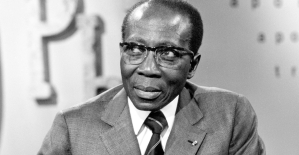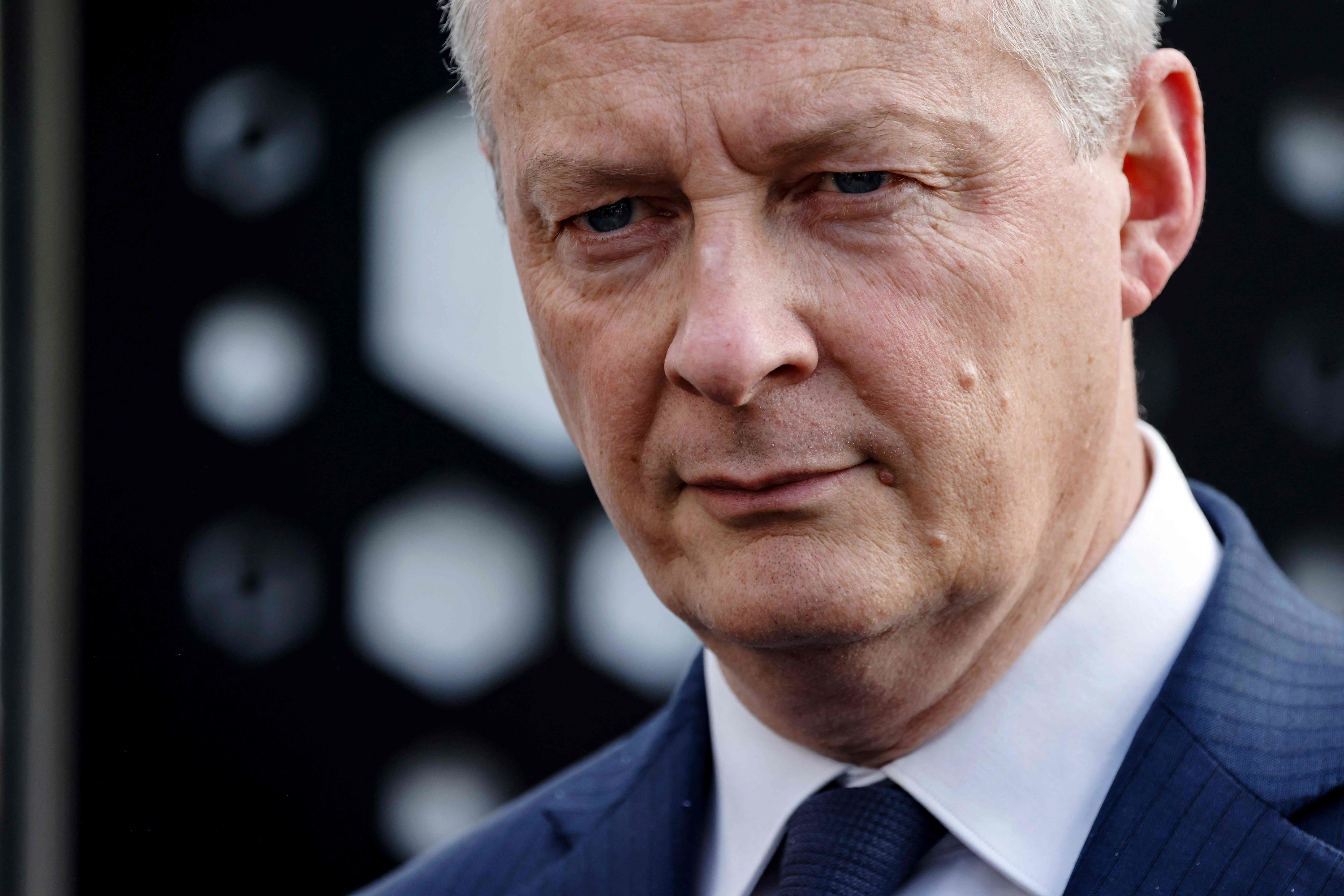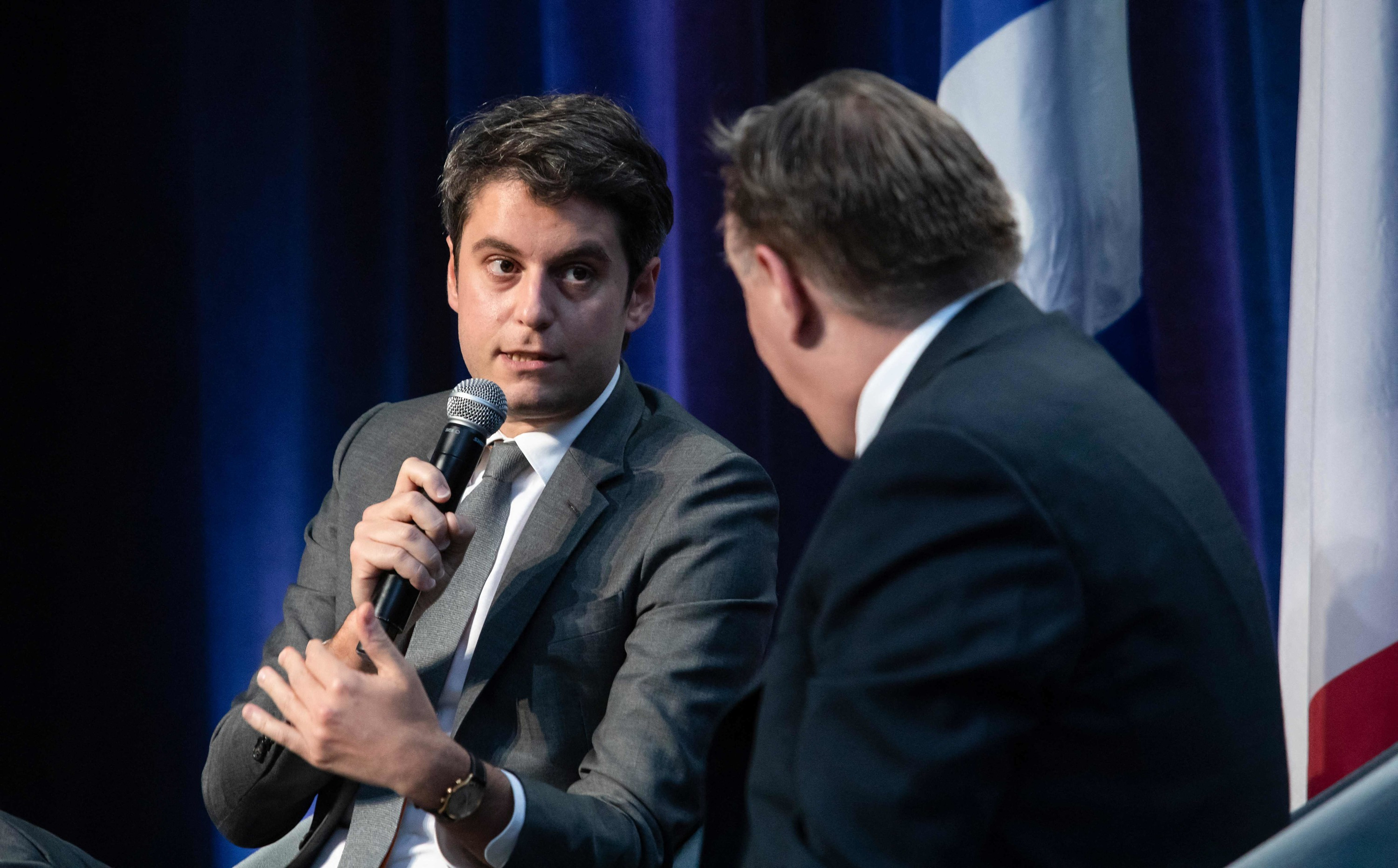On the Powerpoint slides, the cannabis stores look very chic, almost like Apple stores. “We want to keep our stores in white and thus consciously differentiate them from the rather dark shops in Holland. For us, the focus should be on advice," says Lars Müller, Managing Director of the company SynBiotic, which wants to roll out a franchise concept for shops selling cannabis throughout Germany.
Whether the sterile stoner shops will really be found in Germany that soon is by no means certain. Federal Health Minister Karl Lauterbach (SPD) will soon present a new proposal for the legalization of cannabis. Since the previous plans for a complete legalization of the drug are likely to violate both EU law and international law, Lauterbach is aiming for changes to the key issues paper that has already been submitted.
Instead of the general release of marijuana from the age of 18, experts expect a more restricted form of release, initially in the form of scientific pilot projects in individual cities.
The countless companies and start-ups from the cannabis industry, which have geared their business model entirely to legalization, have been eagerly awaiting Lauterbach's new proposals for weeks. Because whether and in what form they can become active in Germany depends entirely on the draft bill.
Numerous companies are already preparing for a plan B, with which their business model would work even without comprehensive legalization. The companies could not come to terms with just one variant.
Peter Homberg, lawyer at the international law firm Dentons, has dealt extensively with what a possible alternative to comprehensive legalization could look like. Homberg analyzed the legal situation on behalf of several cannabis companies.
“If the EU Commission continues to regard the legalization project as incompatible with EU law, it is very unlikely that the German government will continue with this project as originally planned. Based on the statements made so far by the EU Commission, I expect that the federal government will implement the legalization in a different form than previously planned," says Homberg.
According to Homberg, there are three possible alternatives. “The federal government could legalize cannabis in the course of scientific projects. It could introduce so-called social clubs like in Spain, to which only certain members have access. Or it decriminalizes the possession of marijuana, which, however, would miss the goal of legalization,” says Homberg.
The lawyer considers the attempt at legalization by means of scientific projects to be the most likely. “These projects can span entire cities and involve the sale of marijuana to everyone over the age of 18 in that limited area.
The federal government could use these projects to check whether the legalization goals it has set itself, such as improving the protection of minors and drying up the black market, can be achieved,” says Homberg.
Such approaches are resonating with cannabis companies. "During such a pilot, important insights into health and youth protection as well as the impact on the judiciary and drug crime could be collected," says Enua Pharma, a wholesaler of medical cannabis, who also wants to enter the so-called recreational market.
The start-up Sanity Group from Berlin, which wants to set up sales outlets for recreational cannabis in large cities in Germany, could apparently also implement its business model using scientific projects. “We are preparing for different scenarios of legalization. Pilot projects could be a possibility,” says Sanity Group.
Sanity Group emphasizes that there was never 100 percent certainty that legalization would come and that nothing has changed. At the same time, a rejection of legalization for companies like Sanity Group would probably be tantamount to catastrophe.
Just last year, the company secured additional financing of around EUR 37 million. Around 130 employees now work for the company.
That's how most cannabis startups would get by with a plan B. However, there is one twist that would spell the end of their weed business dreams for many of them: decriminalizing marijuana without legalizing it.
The wholesaler Enua Pharma rejects this alternative completely. “Decriminalization without simultaneous legalization would have all the disadvantages of the current situation, including all the conceivable challenges of legalization, but none of its advantages. In principle, such a decriminalization would be a support program for dealers.
Enua Pharma refers to the example of the Netherlands as to how decriminalization works for companies. “While cannabis is freely available to consumers in coffee shops, shops still have to get their product illegally through the back door.
It is obvious that there are no quality and purity controls here. In return, the coffee shops finance an otherwise illegal market in this way,” says the company, which is committed to safe products and the fight against drug-related crime – but also for its own profit.
"Everything on shares" is the daily stock exchange shot from the WELT business editorial team. Every morning from 5 a.m. with the financial journalists from WELT. For stock market experts and beginners. Subscribe to the podcast on Spotify, Apple Podcast, Amazon Music and Deezer. Or directly via RSS feed.

 Sudan ravaged by a year of war
Sudan ravaged by a year of war Ten years after the kidnapping of the Chibok girls, what has become of the terrorist group Boko Haram?
Ten years after the kidnapping of the Chibok girls, what has become of the terrorist group Boko Haram? The Israeli government divided on the extent of its response after Iran's direct attack on its territory
The Israeli government divided on the extent of its response after Iran's direct attack on its territory “Is it time for a killing blow?” : the Israeli press wonders about a response after the Iranian attack
“Is it time for a killing blow?” : the Israeli press wonders about a response after the Iranian attack Covid-19: everything you need to know about the new vaccination campaign which is starting
Covid-19: everything you need to know about the new vaccination campaign which is starting The best laptops of the moment boast artificial intelligence
The best laptops of the moment boast artificial intelligence Amazon invests 700 million in robotizing its warehouses in Europe
Amazon invests 700 million in robotizing its warehouses in Europe Inflation rises to 3.2% in March due to gasoline and electricity bills
Inflation rises to 3.2% in March due to gasoline and electricity bills Large French companies are alarmed by the stalling of the European economy
Large French companies are alarmed by the stalling of the European economy New sanctions against Russia send industrial metal prices soaring
New sanctions against Russia send industrial metal prices soaring Olympic Games 2024: civil servants authorized to carry out private security activities
Olympic Games 2024: civil servants authorized to carry out private security activities Threat of strikes for the 2024 Olympics: Macron says he has “confidence” in the “spirit of responsibility” of the unions
Threat of strikes for the 2024 Olympics: Macron says he has “confidence” in the “spirit of responsibility” of the unions Musical show: “Come Bach”, fantasies around the composer
Musical show: “Come Bach”, fantasies around the composer The cry of alarm from Senghor's friends has been heard
The cry of alarm from Senghor's friends has been heard World Chess Championship: Nepomniachtchi and Gukesh lead the candidates tournament
World Chess Championship: Nepomniachtchi and Gukesh lead the candidates tournament Rapper Heuss L’Enfoiré calls on Ronaldinho for his new music video
Rapper Heuss L’Enfoiré calls on Ronaldinho for his new music video Skoda Kodiaq 2024: a 'beast' plug-in hybrid SUV
Skoda Kodiaq 2024: a 'beast' plug-in hybrid SUV Tesla launches a new Model Y with 600 km of autonomy at a "more accessible price"
Tesla launches a new Model Y with 600 km of autonomy at a "more accessible price" The 10 best-selling cars in March 2024 in Spain: sales fall due to Easter
The 10 best-selling cars in March 2024 in Spain: sales fall due to Easter A private jet company buys more than 100 flying cars
A private jet company buys more than 100 flying cars This is how housing prices have changed in Spain in the last decade
This is how housing prices have changed in Spain in the last decade The home mortgage firm drops 10% in January and interest soars to 3.46%
The home mortgage firm drops 10% in January and interest soars to 3.46% The jewel of the Rocío de Nagüeles urbanization: a dream villa in Marbella
The jewel of the Rocío de Nagüeles urbanization: a dream villa in Marbella Rental prices grow by 7.3% in February: where does it go up and where does it go down?
Rental prices grow by 7.3% in February: where does it go up and where does it go down? Europeans: the schedule of debates to follow between now and June 9
Europeans: the schedule of debates to follow between now and June 9 Europeans: “In France, there is a left and there is a right,” assures Bellamy
Europeans: “In France, there is a left and there is a right,” assures Bellamy During the night of the economy, the right points out the budgetary flaws of the macronie
During the night of the economy, the right points out the budgetary flaws of the macronie Europeans: Glucksmann denounces “Emmanuel Macron’s failure” in the face of Bardella’s success
Europeans: Glucksmann denounces “Emmanuel Macron’s failure” in the face of Bardella’s success These French cities that will boycott the World Cup in Qatar
These French cities that will boycott the World Cup in Qatar Augusta Masters: the unchallenged reign of Scottie Scheffler
Augusta Masters: the unchallenged reign of Scottie Scheffler Tennis: Harold Mayot takes Cachin and goes to the second round in Barcelona
Tennis: Harold Mayot takes Cachin and goes to the second round in Barcelona Barça-PSG: “We will do it”, Luis Enrique shows his confidence before the return match
Barça-PSG: “We will do it”, Luis Enrique shows his confidence before the return match Hakimi on Mbappé before Barça-PSG: “I feel very good, very motivated, like the whole team”
Hakimi on Mbappé before Barça-PSG: “I feel very good, very motivated, like the whole team”


















